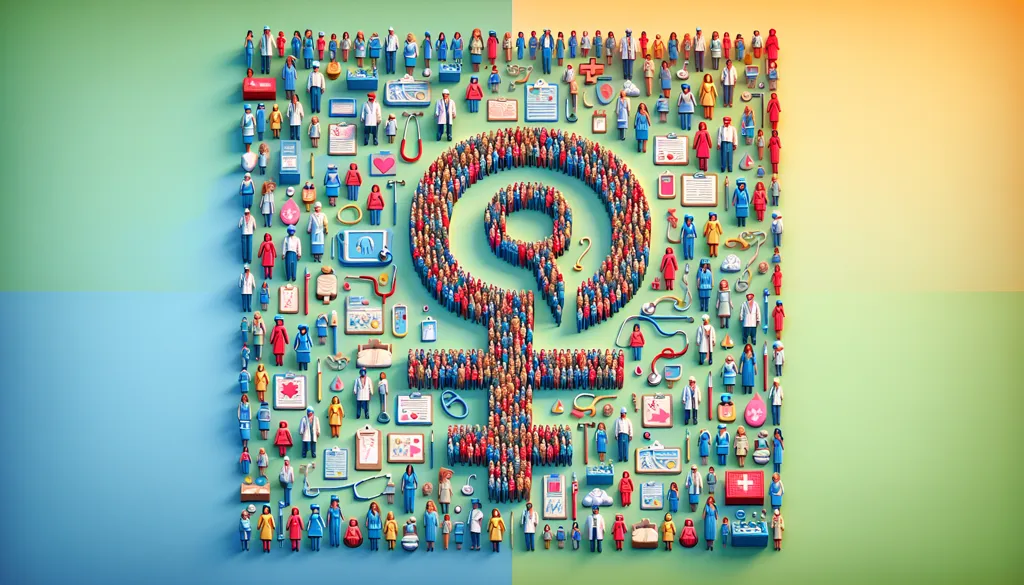The Gender Health Gap: Unveiling Disparities in Women's Healthcare
As a mother and content writer living in the heart of Kansas, I've come to appreciate the importance of accessible healthcare. Yet, across the globe and even within our own borders, women face significant challenges in accessing quality healthcare services. Whether it's obstetric violence in Africa or the gender health gap in heart disease, the disparities are alarming and demand our attention.
Obstetric Violence: A Hidden Epidemic
In many parts of Africa, women experience what experts refer to as obstetric violence—abuse meted out in healthcare settings that is both a human rights violation and a form of gender-based violence. This includes physical and verbal abuse, coercion, and denial of necessary pain relief. Such experiences erode trust in healthcare systems and discourage women from seeking essential maternal care, which is crucial for preventing complications during childbirth.
The statistics are sobering. In Ghana, a 2023 study estimated that 65 percent of women experienced some form of obstetric violence during childbirth. In South Sudan, the figure was even higher at 77 percent. These numbers likely underestimate the true prevalence due to underreporting and data collection gaps.
Efforts are underway to recognize obstetric violence as a form of gender-based violence within conventions like the African Union's, which could provide member states with tools to combat this issue. However, more needs to be done to ensure that healthcare systems are respectful and responsive to the needs of women, particularly those from vulnerable groups.
The Gender Gap in Heart Health
Closer to home, women face another type of healthcare disparity: the gender gap in heart health. Despite heart disease being the leading cause of death for women in the United States, their symptoms often go unrecognized or are misdiagnosed. Women are more likely to experience atypical symptoms like nausea and fatigue, which can easily be mistaken for less serious conditions.
Dr. Sonya Babu-Narayan from the British Heart Foundation highlights that women are more likely to face delays in treatment and misdiagnosis. The disparity is further complicated by societal norms and expectations that may discourage women from seeking timely medical help. This gender gap in healthcare not only jeopardizes women's health but also influences their survival rates post-heart attack.
Organizations like the British Heart Foundation are actively working to bridge this gap by promoting research that focuses on women's heart health and raising awareness about the unique symptoms women may experience. They advocate for policy changes and encourage women to take charge of their health by recognizing symptoms and seeking prompt medical attention.
Challenges in Women's Health Research
Another critical issue is the underrepresentation of women in clinical trials, which contributes to a significant knowledge gap in how treatments affect women differently from men. Historically, women have been excluded from many clinical studies, leading to a lack of data on female-specific responses to medications. This oversight has resulted in higher rates of adverse effects and misdiagnoses for women.
Efforts are now being made to rectify this imbalance. For example, the National Institutes of Health has pledged significant funding to better understand women's health issues and improve their representation in clinical trials. This is a promising step, but it requires ongoing commitment and innovation to ensure that women's health is properly prioritized in scientific research.
Advocating for Women’s Health
The path forward involves addressing these disparities through comprehensive policy changes, increased funding for women's health research, and heightened awareness of gender-specific health issues. It's crucial to foster environments where women feel empowered to advocate for their health and to ensure that healthcare providers are equipped to recognize and address the unique needs of women.
In my own community, I've seen the power of grassroots advocacy and the impact of informed women making choices about their health. By sharing stories, supporting research, and pushing for policy changes, we can work towards a future where women's health is no longer an afterthought but a priority.
Conclusion
Addressing the disparities in women's healthcare is not just a matter of justice; it's a matter of life and death. From obstetric violence in Africa to the gender health gap in heart disease, these issues demand our attention and action. By advocating for research, awareness, and policy changes, we can ensure that women everywhere receive the care and respect they deserve. As a mother, a writer, and a woman, I believe it's a cause worth fighting for.

